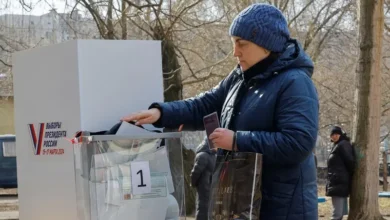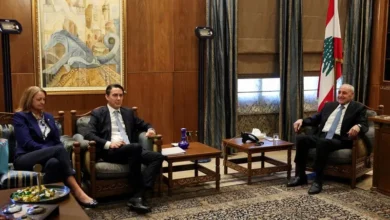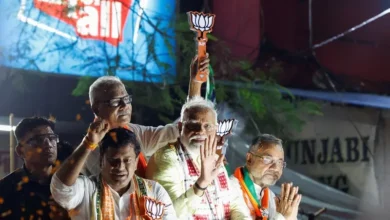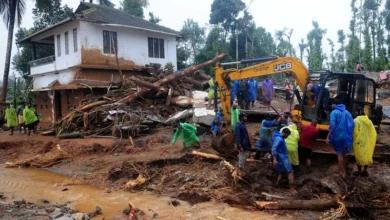‘Music to Beijing’s ears’: Has China won the Maldives presidency?
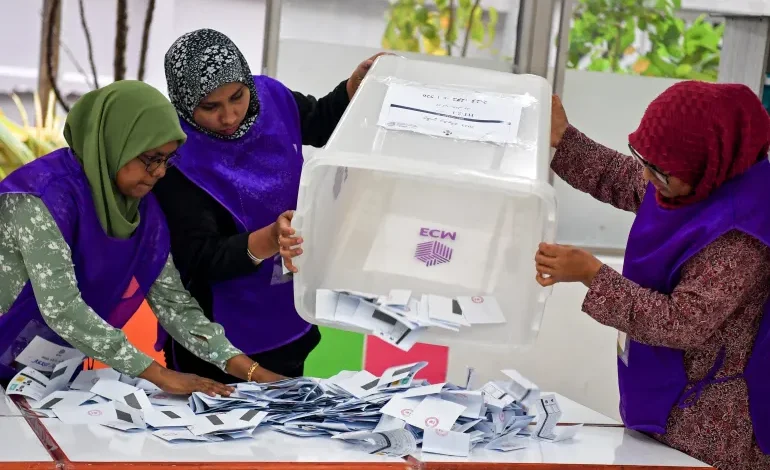
The Maldives has a population of half a million people scattered across more than 1,000 islands. But last weekend, the picturesque archipelago delivered an electoral verdict that has sent shock waves around the world — and especially across the Indian Ocean region.
Mohamed Muizzu, the opposition candidate, emerged victorious in the presidential run-off on Saturday and secured 54 percent of the vote, results released by the electoral commission showed.Muizzu, who backs closer ties between the Maldives and China, defeated the incumbent President Ibrahim Mohamed Solih, who is widely perceived as pro-India.
“With today’s result, we have got the opportunity to build the country’s future,” Muizzu said in a statement after his victory. “The strength to ensure the freedom of Maldives.”
The vote transformed into a de facto referendum over the country’s ties with India and China.
India has 75 military personnel stationed in the Maldives. New Delhi says they are there to maintain and operate two helicopters and an aircraft it donated to the country. Throughout his election campaign, Muizzu pledged to remove those troops from the Maldives.
“Seen from the zero-sum lens that often drives great power competition, Beijing is a big winner from this election,” Michael Kugelman, South Asia director at the Wilson Center, a Washington-based think-tank, told Al Jazeera.
“Muizzu’s campaign plank was not only about strengthening ties with Beijing, it was also about aiming to undermine India by calling for an end to any Indian military presence in Maldives. This is music to the ears of Beijing,” he added.To be sure, India will look to retain as much of its influence in the Maldives as it can, say analysts.
Following the announcement of Muizzu’s victory, Indian Prime Minister Narendra Modi sent his congratulations to the president-elect.“India remains committed to strengthening the time-tested India-Maldives bilateral relationship and enhancing our overall cooperation in the Indian Ocean Region,” Modi said on X, formerly known as Twitter.
New Delhi has enjoyed cosy ties with Male under President Solih, who took office following a landslide victory in 2018 against Muizzu’s mentor, former President Abdulla Yameen.
India poured hundreds of millions of dollars into the tourist hot spot. New Delhi also financed infrastructure projects, both big and small, in the country.
“India will support the new democratically elected government and will seek to work closely with it,” Shantanu Roy-Chaudhury, author of The China Factor: Beijing’s Expanding Engagement in Sri Lanka, Maldives, Bangladesh, and Myanmar, told Al Jazeera.
The Modi government, he said, is “likely to continue its pursuit of the Greater Male Connectivity Projects” — a 6.7km (4-mile) road project currently under construction that aims to link the capital, Male, with the island of Villingili. India has given the Maldives a $100m grant and a $400m line of credit for the infrastructure initiative.
But the road ahead won’t be easy for New Delhi, said Roy-Chaudhury. “Given the new government’s pro-China outlook, the future of Indian influence and development projects hangs in the balance,” he said.
Muizzu, a 45-year-old civil engineer by training, has taken aim at the imbalanced trade relationship between the Maldives and India, promising to fix it.
But while trade between the South Asian neighbours is heavily skewed towards India — as is often the case between a giant economy and a smaller one — the Maldives fares little better when it comes to China.






